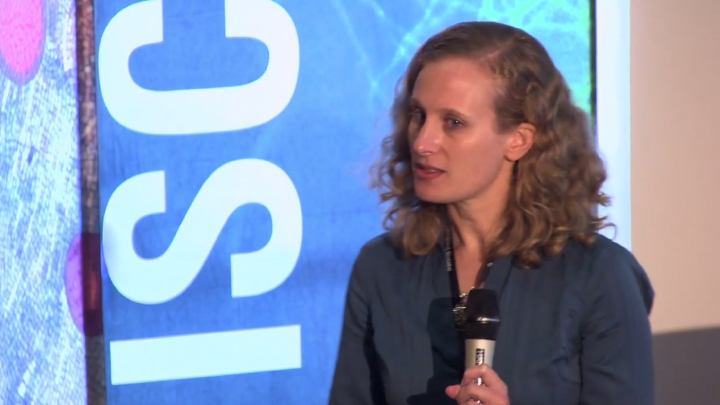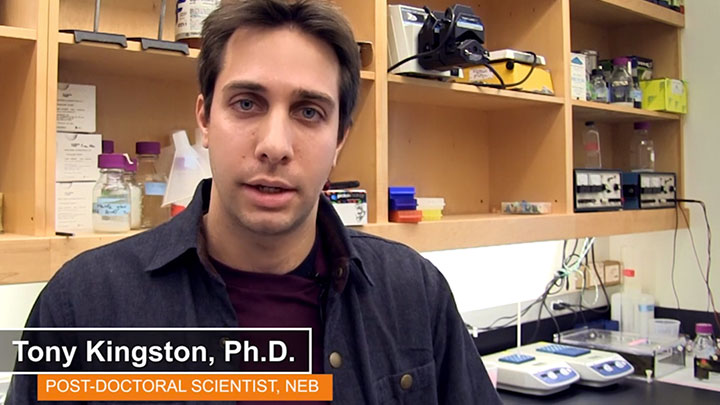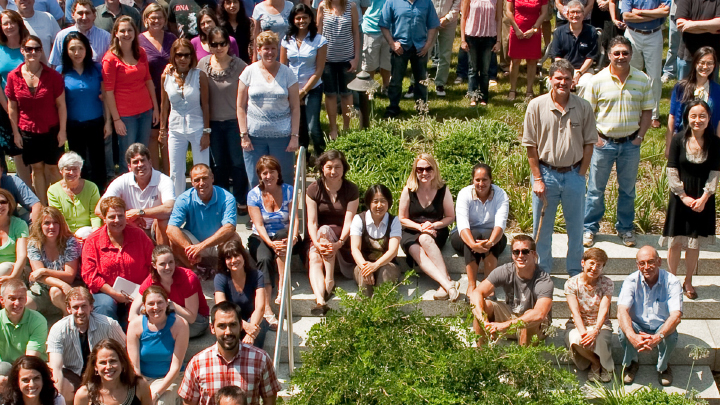Helpful tips for job hunting
Script
I know that a lot of people use LinkedIn to post their jobs and so it gives you kind of direct contact to the hiring scientist and I think it's a good way to see what's out there, see who you may know who can help you. I think people are usually willing to help others find a job, so I think LinkedIn is a great resource.
Ben Barone:
I use LinkedIn to look at the connections I had from my alma mater.
Kelly Schermerhorn:
If you're in school your career center and those sorts of resources can definitely help.
Andrew Gray:
In my case that was a particularly strong resource and I know of other people at other institutions who've made good use of their career services.
Andrew Gray:
It started with a phone interview which was mostly just one-on-one between me and the Hiring Manager and just her getting a sense for me, for my background and sort of typical behavioral interview questions.
Tony Kingston:
My job interview started with an hour long research talk where I presented my graduate research.
Kelly Schermerhorn:
If you're looking for a post-doc position or a scientists position you give a presentation, usually in front of maybe 15 to 20 people. After that I think I interviewed with around six scientists.
Andrew Gray:
Then a meeting with the Hiring Manager and then individual meetings with everyone in the team.
Andrew Gray:
I think looking through some of the various online resources of typical behavioral interview questions, you can get a sense of the kinds of questions you're going to get.
Kelly Schermerhorn:
Can you name a time when you were innovative, or can you name a situation where something didn't go wrong, or something went wrong and you had to figure out a way to remedy that situation, or can you think of a time when you had to work with a difficult colleague? How did you handle that situation?
Tony Kingston:
What do you intend to do five years from now or what do you hope to get out of this job?
Andrew Gray:
Talk about a time that you've made a mistake and that's tricky because you don't want to... everyone makes mistakes and what you really need to think of very quickly in a situation like that, is what the follow up question to name a time that you've made a mistake is. Because it's easy to say when you've made a mistake. What's more difficult is saying how did you learn from that mistake, how did you correct that mistake.
Ben Barone:
Because I was looking for a job that was outside of the lab, I pursued a role as a sales representative and in the interview process it was very much about being able to speak the language of science and how I could adapt that to a conversation to be consultative to my customers.
Tony Kingston:
Any researchers who are looking for a job should first and foremost make sure to network, to contact anyone they can think of that can help them get a job. Just going to conferences and talking to people goes a long way.
Andrew Gray:
Before your interview, ideally even before a phone interview, to learn as much as you can about the company.
Ben Barone:
Look at the actual company's websites, or the university's page to find out more information about the environment, the culture and more specifics about how that company participates in the scientific industry.
Tony Kingston:
When putting together a resume I think it's very important to tailor a resume to a specific job. Make sure you highlight the skills you have that are more relevant to the job first, and make sure you write a very personal cover letter that is very clear that you didn't just copy and paste it.
Ben Barone:
I think it's important that you express your acumen in science, but also make sure the resume's specific for the role. For me, being in sales, you have to be very metric driven, so you have to be able to show your achievement through the numbers, but also show your achievement through selling. Maybe a more complex application in the scientific realm, because the company's looking for someone with that level of expertise.
Kelly Schermerhorn:
Not even here at NEB, but anywhere I think it's also important that you interview where you're going. You want to ask questions. Is this the right place for you, are you going to fit in well, is this really what you want. I know a lot of times graduate students just want to get out of school and they really want to get a job, but I think it's really important that you're also happy with where you end up.
Linda Stecchi:
So interested candidates can find all of our job openings online under our career section at NEB.com. We also post a large majority of our postings at massbio.org and many association websites. If you're interested in applying for one of our job openings, please go online, complete an online application and submit a cover letter and a resume.
Related Videos
-

GO GIRL: Promoting girls in STEM -

NEB® TV Ep. 5 – Careers in Science -

Science, Philosophy & History of the Company

